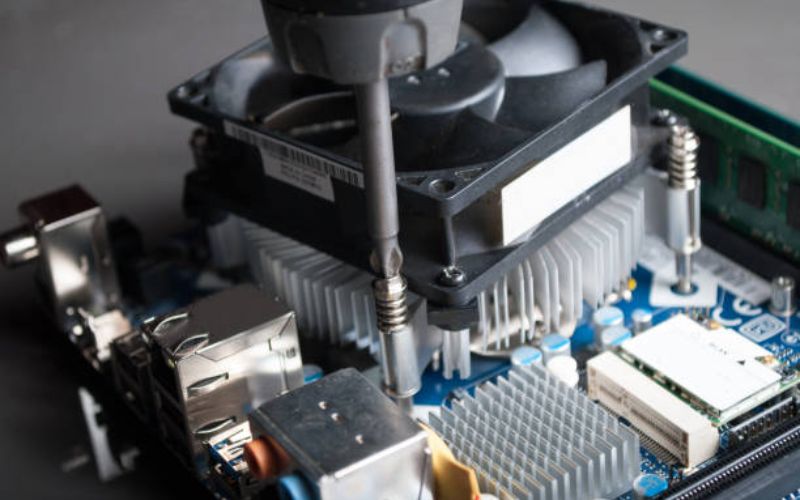The Importance of a Heatsink for Your CPU
Central Processing Units (CPUs) are the brains of your computer, responsible for executing instructions that power all functions of your machine. However, these processors can get quite hot during operation, leading to potential damage or even complete failure without proper cooling measures. In this article, we explore the importance of a heatsink for your CPU, and why it's a critical component for any modern computer.
What Is a Heatsink?
A heatsink is a device that’s designed to absorb and dissipate heat. These devices are typically made of materials that are good conductors of heat such as aluminum or copper. When a CPU gets hot, the heatsink helps move the heat away from the processor, preventing overheating. This process is called thermal management.
Do All CPUs Need a Heatsink?
Yes, all CPUs require some form of a heatsink. It's because CPUs generate heat while operating, and this heat needs to be dissipated to avoid damaging the processor. Almost all modern CPUs come with an integrated heatsink, but these often aren't enough. For example, if you're running demanding applications or working in hot environments, you may need to invest in a better cooling solution.
What Happens if Your CPU Overheats?
If a CPU overheats, it can cause significant damage to the processor, leading to instability, crashes, or complete failure. High temperatures can also cause other computer components to fail, such as the motherboard or graphics card. Overheating can also reduce the lifespan of your CPU, meaning you’ll need to upgrade your hardware sooner than you would have otherwise.
How Do Heatsinks Work?
A heatsink works by absorbing heat from the CPU, increasing its surface area, allowing the heat to be dispersed more efficiently. Most modern heatsinks are made of materials such as aluminum or copper, which have high thermal conductivity, meaning they can move heat away from the CPU in an efficient manner. Fans and other cooling mechanisms can aid in the cooling process by increasing airflow across the heatsink.
What Are the Different Types of Heatsinks?
There are various types of heatsinks available in the market today. The most common types of heatsinks are air-cooled and liquid-cooled heatsinks. Air-cooled heatsinks utilize fans to push air through the fins, increasing the heat dissipation capacity of the heatsink. On the other hand, liquid-cooled heatsinks use a liquid to carry away heat from the CPU and transport it to another location, where the heat can be dissipated.
What Factors Determine the Need for a Heatsink?
Various factors can determine the need for a heatsink, such as the workload on the CPU, the operating environment, or the hardware configuration of the computer. If you're running a CPU-intensive workload such as rendering or gaming, you may need a higher performance heatsink. Hot or humid environments may also require more robust cooling solutions to keep the temperature under control.
Can Overclocking Increase the Need for a Heatsink?
Yes, overclocking can increase the need for a better heatsink. Overclocking means pushing the CPU beyond its default speed, which generates more heat. Therefore, the greater the overclock, the higher the need for an efficient heat dissipation system. Failure to use a proper heatsink while overclocking can lead to damaging the CPU or preventing the CPU from providing the desired performance boost.
What Are the Benefits of a Good Heatsink?
The benefits of a good heatsink go beyond just managing the CPU's temperature. A good heatsink can ensure the longevity of your CPU, giving you optimal performance and saving you money in the long run. Proper thermal management can also prevent crashes, system instability, or data loss caused by overheating. Better cooling performance can also allow you to perform CPU-intensive tasks without the risk of damaging the processor.
Do Heatsinks Affect the Noise Levels of a Computer?
Yes, heatsinks can affect the noise levels of your computer. Air-cooled heatsinks that use fans can create noise due to the increased airflow. However, many modern heatsinks come with fans that are designed to run quietly while still offering efficient cooling performance. Alternatively, you can opt for a liquid-cooled heatsink, which tends to be quieter while offering excellent cooling performance.

